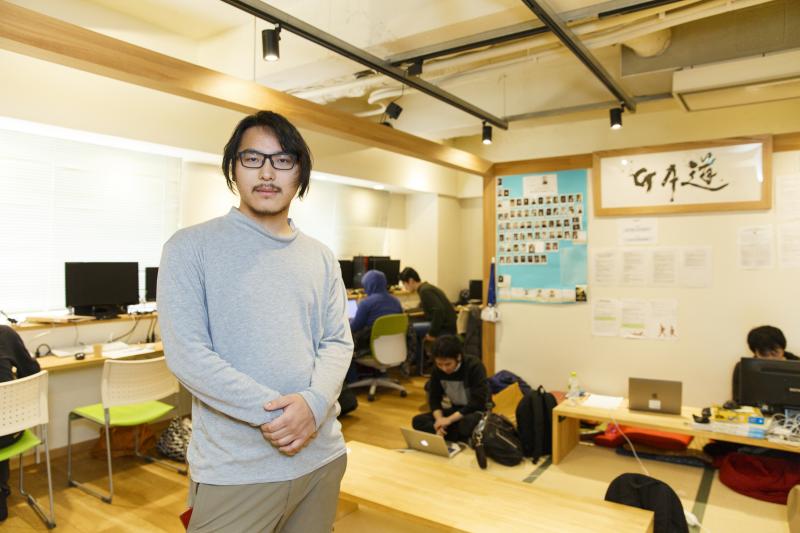
- ARAB NEWS
- 30 Jul 2025

DUBAI: Jun Kawasaki, CEO of Gftd Japan and MetaX, is aiming to improve society’s support for adults with developmental disabilities by providing programming education and employment assistance.
The Gftd Academy opened in August 2016 and teaches design and programming techniques that are increasingly in demand in the labor market to provide employment opportunities.
Kawasaki also heads MetaX, which is a platform that provides a secure way for users to invest and trade crypto assets.
So, what are Kawasaki’s thoughts on the current market, the Middle East region and Japan’s employment opportunities? Read the interview below:
Q: What inspired you to launch MetaX?
A: I was inspired to start MetaX as an exchange to provide an easy and secure way for users to invest and trade crypto assets. I had previously developed and led DAO, DeFi, and Crypt Exchange as CTO, and was involved in the founding of projects such as TokyoOtakuMode and Amatelus. As for my role in Japan’s society, I founded Gftd Japan, which provides programming education and employment support for adults with developmental disabilities, and I am currently the President of Gftd Japan, Inc.
Q: What is your role as the CEO of MetaX and what do you hope to achieve with the company?
A: As the CEO of MetaX, my role is to lead the company and its team to achieve its goals, which includes providing an advanced trading experience for every user, with any level of experience, to easily exchange crypto assets, as well as offering an NFT marketplace and gaming guild. My vision for the company is to improve the interoperable experience of GameFi and the Metaverse by creating, collecting, and trading NFTs for favorite gaming and metaverse experiences, discovering the next Web3 leading projects. MetaX’s vision is to connect and unite the various metaverses through their platform. MetaX is interested in the metaverse and WEB 3.0 development and wants to help investors discover interesting metaverse initiatives and up-and-coming projects to launch their tokens on their platform. We also aim to help businesses execute campaigns to raise awareness of their projects and ensure the quality of the projects they list through a due diligence procedure as well as provide users with the opportunity to access a vast untapped potential in the metaverse and allow them to live the experience they want. Overall, we want to focus on building a platform that can facilitate the growth and interaction of various metaverse projects.
Q: Would you consider expanding into the Middle East? Why?
A: Yes. The Middle East has shown a growing interest in and adoption of blockchain and cryptocurrency technologies in recent years. Several countries in the region have made significant progress in developing regulatory frameworks for these emerging technologies. For instance, the UAE has been leading the way in creating a favorable environment for blockchain and crypto innovation.
The UAE has even set up a dedicated government entity called the Dubai Blockchain Strategy, which aims to make Dubai the world’s first blockchain-powered government. The country has also established several free zones dedicated to blockchain and crypto businesses, such as the Dubai Multi Commodities Centre (DMCC) and Abu Dhabi Global Market (ADGM).
On top of that, I recently attended the launch of Hub71 + Digital Assets in Abu Dhabi. This program aims to accelerate the growth of Web3 startups with a total value of $2 billion. The program will provide support for startups working in blockchain, digital assets, and other Web3-related technologies.
Overall, the regulatory environment in the Middle East is becoming increasingly friendly towards Web3 and related technologies, and this has definitely made it a more attractive destination for MetaX to expand.
Q: During your time in the UAE, how did you feel about the start-up scene? Do you see the potential?
A: You can feel the energy here in UAE within the start-up scene. It’s definitely promising and has a lot of potentials still. The UAE has been investing heavily in developing a strong startup ecosystem in recent years, and it has already shown promising results. It helps as well when the government has launched various initiatives and programs to support and encourage entrepreneurs such as Dubai Future Accelerators and Dubai Startup Hub. This is especially important within a nascent industry that still needs a lot of support from the ground up. The country also has a favorable business environment, including low taxes and ease of business, making it fairly easier for startups. Overall, the potential for the startup scene in the UAE is significant, and it will be exciting to see how it evolves in the coming years.
Q: Have you seen any similarities and/or differences in the way business is handled in the Middle East compared to Japan?
A: One similarity between the two regions is that both cultures strongly emphasize building personal relationships and trust before conducting business. This can involve socializing outside of work or engaging in small talk before discussing business matters. Additionally, both Japan and the Middle East tend to have hierarchical business structures where decisions are made by senior management.
However, there are also significant differences between the two regions. In Japan, there is a cultural emphasis on harmony, consensus-building, and avoiding conflict. This can result in a slower decision-making process, as everyone is consulted and opinions are heard. In contrast, the Middle East may have a more direct and confrontational communication style, with less emphasis on building consensus.
Another notable difference is the role of religion and tradition in business. In the Middle East, Islam plays a significant role in business practices and decision-making, with the concept of Sharia law influencing how business is conducted. In contrast, Japan is a largely secular society, and business practices tend to be influenced more by traditional cultural values.
Overall, while there may be some similarities in business culture between Japan and the Middle East, there are also significant differences that must be taken into account when conducting business in either region.